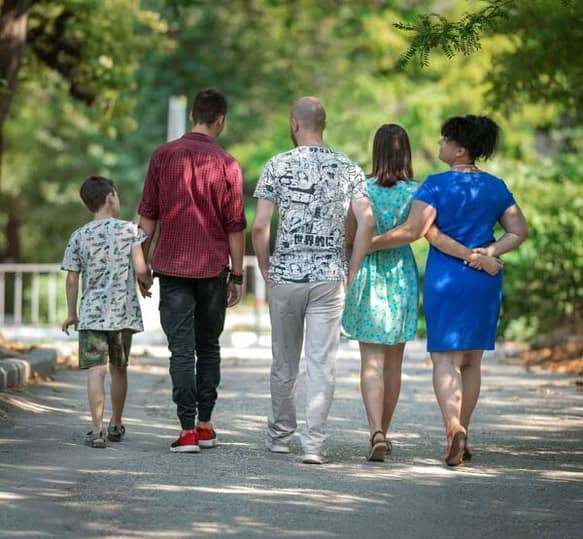An Electronic Mental Health Newsletter from Joel I. Kimmel, Ph.D., P.A. & Associates Volume 18, Number 10
This month’s e-Letter is about the importance of relationships. In our office, we see many, many patients who have difficulties in how they get along with others.
When they work, relationships can truly be very enjoyable, as well as necessary for good mental health.
But now, especially with election frustration and anxiety, our society has become polarized and divided. Honesty and trust in others have decreased. We all have to be on guard not to be scammed or have our identities stolen.
As a result, frustration, depression, stress and even medical problems are on the rise.
This month’s e-Letter provides information and strategies for creating and maintaining good relationships during this time in our lives.
Make sure to read Dr. Kimmel’s latest blog, Politics and Business, here.
We hope you find the enclosed information helpful and interesting. We also thank you for reading our e-Letters and for the numerous comments and messages of support we have received.
KimmelPsychology is available for anyone in need of support, counseling, professional coaching, and psychological assessments. We practice telehealth and safe, in-office visits. For an appointment, call us at 954 755-2885. Se Habla Español.
Testings. If you are concerned about your child’s placement in school, this would be an excellent time to have them evaluated. Typical parent questions have ranged from should their child be retained to whether they are gifted to whether they have a disability that can qualify for accommodations at their school.
Our practice performs the different types of evaluations to help answer those questions. Information regarding the tests can be found on our website. If you have more specific questions, please contact Dr. Kimmel.
THE VALUE OF RELATIONSHIPS!

Many health advocates believe that relationships are critical for good mental health and the enjoyment of life. In fact, Dr. Vivek H. Murthy, the Surgeon General of the United States, described the U.S. as being in an epidemic of loneliness. Being alone is associated with a greater risk of cardiovascular disease, dementia, stroke, depression, anxiety, and premature death.
Polls have shown that among U.S. adults, about one in three said they feel lonely at least once a week. Worse, one in ten Americans say they feel lonely every day.
Younger people are more likely to experience loneliness, which has been defined as a lack of meaningful or close relationships or sense of belonging. About 30% of respondents, ages 18 to 34, said they feel lonely every day or several times a week.
Historically, in 1938, Henry Murray identified the need for affiliation as a fundamental motivation of people. This was later popularized by David McClelland who found that people with a high need for affiliation require warm interpersonal relationships and approval from those they have regular contact.
Abraham Maslow in 1943 developed a hierarchy of needs among which Loving and Belonging immediately followed Physiological and Safety needs. Humans need to feel a sense of belonging and acceptance among their social groups whether it be family, co-workers, or teams. He believed that people need to love and be loved to avoid loneliness, depression, and anxiety.
Having meaningful relationships allows a person to feel important, to feel connected, to be able to share, and to help and be helped.
When connected to others, people feel that they are not alone and that someone truly cares for them.
Through relationships, we also learn who we are by getting feedback from others.
Yes, it seems that people actually do need other people to live a full and healthy life. Those who have unhealthy relationships or who isolate face the challenges of decreased health, depression, anxiety, and loneliness.
The bottom line is that relationships are necessary and critical for good mental, physical, and societal health.

We offer the following information:
THE VALUE OF RELATIONSHIPS!
When you stop expecting people to be perfect,
you can like them for who they are… Donald Miller
WHAT TO KNOW!
WHAT TO DO!
WE PRACTICE BOTH IN-OFFICE AND TELEHEALTH; WE CAN HELP!
Call us at 954 755-2885 or email us at info@KimmelPsychology.com
Joel I. Kimmel, Ph.D. P.A. and Associates
5551 N University Drive, Suite 202
Coral Springs FL 33067
As always, we are interested in your thoughts. If you would like to respond to this e-Letter, email your comments to DrKimmel@Kimmelpsychology.com and we will publish them next month.
Till November…
The information provided in this electronic newsletter is not a substitute for professional treatment. It is the opinions of the writers and is provided solely for educational purposes. For mental health care, seek a qualified professional.
If you no longer wish to receive future e-Letter reminders, please send an email to DrKimmel@KimmelPsychology.com. requesting to be removed from this list.
If you find this information interesting or helpful, please forward this E-Letter to your contacts and friends.
Copyright © 2024 by Joel I. Kimmel, Ph.D. P.A. and Associates.










